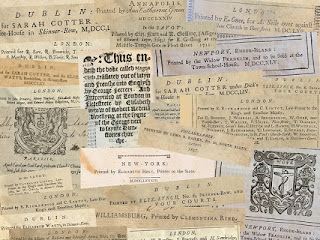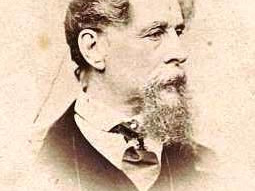James Fishman, Pace University School of Law, has posted A Random Stroll Amongst Anthony Trollope’s Lawyers:
Anthony Trollope (1815-1882) resides in the pantheon of nineteenth century English literature. Overcoming a miserable childhood, he became an official with the post office and is credited with introducing the familiar red mailbox. While working full time in his postal position until 1867, he still managed to publish 47 novels, travel books, biographies, short stories, collections of essays, and articles on various topics. Trollope has been described as the novelist of the ordinary for his realistic description of English society.
Law and legal issues flow through Trollope’s fiction. The legal system held a special importance to him as the skeleton upholding the social and political framework of the country. Over one hundred lawyers appear in his work and eleven of his novels feature trials or hearings. The law intrigued and exasperated him. Along with the lawyers and legal issues he depicts are ideas of the law and legal system that are part of elaborate philosophical and jurisprudential traditions, which he recognized.
This article examines Trollope’s changing attitude toward lawyers. It describes the structure of the Bar in terms of class, status and reputation. Trollope believed the legal system should ensure justice, and those who labored in the law should be the vehicle of that pursuit. Justice for Trollope was the meting out of rewards and punishments as the consequence of a right or wrong decision. However, the law, as he depicted it, was often an impediment to this process, and lawyers were unreliable guides.
Initially Trollope portrayed lawyers critically as caricatures as evinced by such names as Alwinde, O’Blather, Slow & Bidewhile, Haphazard, and Chaffanbrass. He was outraged that barristers (lawyers who appear in court) put loyalty to their clients ahead of the search for truth and justice. The adversary system was flawed as the enactment of laws in accord with the laws of nature assumes an inbuilt moral compass in humans that contains self-evident truths of right and wrong. Trollope felt there was no reason why a right-minded person could not intuitively recognize the truth, so criminal law’s adversary system was unnecessary. The legal system sought not the discovery of the truth but was more interested in aiding the guilty defendant to escape punishment. Another grievance was that cross examination in a trial submitted honest witnesses to torture and distracted them from testifying as to the truth.
As he matured as a writer and achieved success, Trollope’s understanding and appreciation of the legal profession changed. He met and become friends with leaders of the Bar, and they influenced his descriptions of lawyers, who became realistic and often admirable human beings. Beyond the legal problems of its characters, Trollope’s later novels incorporated the social, political, and jurisprudential issues of the times and engaged the Victorian legal culture in a broader sense of history, traditions, continuity and change.
Trollope’s attention to the faults of the adversary system had its source in principles of natural law, which posited that God-given universal axioms of right and wrong gave individual guidance or a map for reaching the right result in a legal controversy. Natural law principles were challenged during the Victorian era by positivist notions that law is what the statute books say, and legislators enact. These divisions lurk in the background of his later portraits of lawyers and the legal system. In his later period Trollope created a realistic characterization of the legal profession at the time that offered universal insights into human nature.
--Dan Ernst






